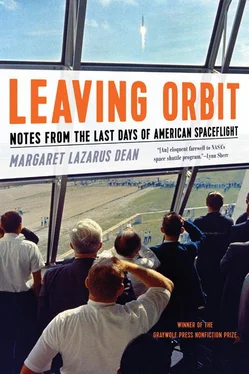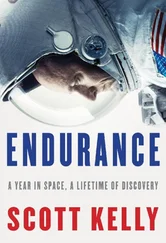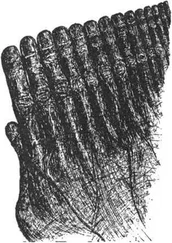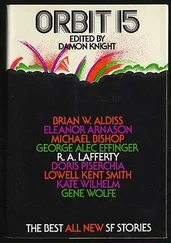What he would have to give up forever: his writing. His life’s work, his ego, his fame. His travels, his affairs, his one-night stands, his television appearances, his campus lectures, his outrageous interviews. His freedom to accept when Life asks him to go to Cape Canaveral to cover the launch of Apollo 11. All the powerful and ruthless men I’ve been reading about—Juan Ponce, James Cook, von Braun, the Mercury astronauts—had this freedom; they also had wives and children who carried on without them with varying degrees of success. This admission of Norman Mailer’s does not carry the power of transformation, or even of any type of insight, because he attributes his freedom to the biological fact that he’s a man: “[H]e could not know whether he would have found it endurable to be born a woman.” He guessed that being a woman might have driven him insane.
An interesting thing happened at the end of the summer of 1969: more than the usual number of marriages in Norman Mailer’s social circle broke up, including his own. There is a weird moment toward the end of Of a Fire on the Moon when, just home from Cape Canaveral, Mailer catches sight of Beverly at a party.
Aquarius watched his wife at the other end of the lawn and knew again as he had known each day of this summer that their marriage was over. Something had touched the moon and she would never be the same.
Something had touched the moon. Mailer reminds us throughout his book of the possibility that some spiritual balance would be altered by the violation of man’s boot touching a celestial body, the feminine moon. Something magical, mystical, astrological. He does, after all, refer to himself as Aquarius throughout and gives a great deal of attention to the astrological signs of the astronauts. Why not blame on the boots of Armstrong and Aldrin the tectonic shifts in a woman’s heart, rather than his own failure to take seriously his wife’s work?
Immediately after the launch of Apollo 11, the press corps was taken around to visit the wives of the three astronauts then on their way to the moon. Norman Mailer found Jan Armstrong appealing in a plain and hardworking way; Pat Collins he found unremarkable. But Joan Aldrin he found quite captivating. He didn’t fail to notice that, like his own wife, she was an actress who had given up her craft for a husband with an overwhelmingly public career. He saw in the theatricality of her answers to reporters’ banal questions a hint of the frustration he saw in his own wife. Mailer couldn’t have known that Buzz and Joan Aldrin were to divorce, just like Beverly and himself, shortly after.
What would Norman Mailer think of me, a mother and wife, following in his footsteps at Kennedy? If time could fold back upon itself, if he and I could both be standing on that field of grass by the countdown clock at the Press Site on the same hot Florida day rather than days separated by forty-two years, what would we see in each other? I doubt very much that our encounter would be anything like those I’ve had with other space people in my own time—I doubt we’d swap stories of slips and delays, of lonely nights in Space Coast motels, of bad food and sunburns, of the finer points of liquid fuels and hypergolic thrusters. Would he walk right by me, assuming me to be somebody’s secretary, somebody’s wife, a nonwriter, nonartist, non-ego with nothing to contribute to the world but to care for and feed a male ego and his babies? He’d said not long before that “the prime responsibility of a woman probably is to be on earth long enough to find the best mate possible for herself, and conceive children who will improve the species.”
Or would he, out of boredom and isolation and the lowered standards that come with launch conditions, attempt to bed me? Would he corner me at a space party, ask me to dinner, ply me with wine? Does it make me shallow that of these scenarios, the latter seems least depressing, because in trying to seduce me he’d at least have to pay attention to me, look me in the eye, talk to me and pretend to listen?
It’s important to remember that, as destructive as attitudes like Mailer’s were to women (both the individual women he knew and women as a group in society), it was also a loss to men of his time that they were denied the pleasures of taking care of children, the pleasures of home life to which they contributed more than a paycheck and a last name. And they were denied the honest uncomplicated friendship of women: professional collaboration and respect, intellectual rapport, gossip, comfort, advice, simple favors one friend does for another, games of online Scrabble. As much as I envy Norman Mailer the events he got to take part in, I can’t really envy him his era. He and I never could have been friends in it. I would not have been allowed to be a writer in it. Or if I had, if I’d managed to make a place for myself as Joan Didion and Susan Sontag did, readers would have hastened to assure each other that, smart as I may have been, I was a bad mother, a bad wife, not pretty or nice enough. This is familiar from the narratives about women astronauts—you can go, but we’ll say you abandoned your children. You can go, but we’ll say you are unnatural for choosing not to have children. It’s a dream still, the dream of being allowed full participation. The dream is alive, I suppose. The dream is still in the process of coming true.
* * *
Just as it did the last time I was driving toward the south gate of the Kennedy Space Center in the middle of the night, the gas station on State Road 3 beckons to me with its alien landing lights, its promise of coffee. I haven’t stopped here since the launch of Atlantis , ten months ago, and as I park to go inside I remember how overrun this place was that day, space fans from all over the world sloshing coffee on the counters and waiting in line to pay for their snacks before heading out to see something historical. There are only a couple of cars parked here now, and I know it will be different today, but I’m still not prepared for how different the scene is when I walk in. A young woman is mopping the floor while a bored-looking man stares into space behind the counter. I am the only customer, and every surface is clean. Neither employee wears any space pins or patches.
As I push back out into the humid night, I hear a sound coming from the other side of the gas station. Instead of getting back into my car, I wander around the corner of the building to try to hear it better. Back there it’s surprisingly undeveloped, the type of wetland that covers the Merritt Island National Wildlife Refuge. It still takes me a second to place the sound: it’s alligators bellowing to each other in the dark.
I’m once again back on the Space Coast, once more adding another visit after the one I had thought would be my last. On the drive here, which I now know so well, I felt happy. Part of me had been missing Florida, had been trying to think of an excuse to come here again. I think of Oriana Fallaci heading back to the Space Coast—the first time she came here, she’d described it as being “so ugly that if you saw it you’d agree to go to the Moon, which might not be better but certainly couldn’t be worse.” But after several visits, after making the acquaintance of astronauts and engineers and managers and seeing a launch, Fallaci started to feel the same way about the Space Coast that I do.
I was on my way back to Cape Kennedy: happy to see my friends, to see the launching of the Saturn rocket, to be going home. Now I liked Florida that I’d described so cruelly…. Suddenly it was my home.
I’m here to see the first launch from Cape Canaveral operated by a private company, SpaceX. Today SpaceX will attempt to launch its own spacecraft, the Dragon, to dock with the International Space Station and deliver supplies. This would be a first, and it would make SpaceX the front-runner to become the contractor NASA hires to get people and cargo up and down to the International Space Station. Even if today’s launch is successful, Dragon will have to fly many more resupply missions, over a period of years, before it can be considered safe for astronauts.
Читать дальше









